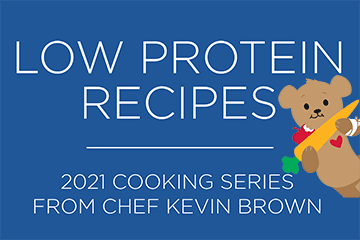Specialized Expertise
Phenylketonuria (PKU)
PKU is also known as PAH (phenylalanine hydroxlyase deficiency).
Individuals with PKU are unable to process the amino acid phenylalanine, which is an essential amino acid found in many typical protein-rich foods. Some nutritional guidelines include:
- A special low-protein diet followed throughout life to restrict intake of phenylalanine.
- Avoiding milk, fish, cheese, nuts, beans or meat, as these foods are very high in protein. Foods low in protein, such as breads, cereals and grains may be eaten in small quantities, as well as low-protein specialty foods.
- Phenylalanine-free formulas, drinks and foods (medical foods) are an essential part of the nutritional treatment for PKU and are recommended for patients of all ages to assure a nutritionally complete diet.
- Specific mineral and vitamin supplements may be needed to make up for missing nutrients in the diet.
- Children and adults with PKU need to avoid the sugar substitute- aspartame and must read food labels to avoid sodas or any other products that contain it.
Glycogen Storage Disease
Glycogen storage disease (GSD) nutritional support will depend on the type of GSD and the symptoms. The treatment goal is to maintain normal blood glucose levels. Dietary guidelines for common types of GSD include:
- GSD Type I: Frequent meals and snacks are given throughout the day. Foods that are high in fructose are eliminated and galactose and lactose are limited. Cornstarch (uncooked) is introduced after the age of 1 to provide a steady slow-release form of glucose throughout the day.
- GSD Type III: Frequent meals and snacks are given throughout the day to maintain blood normal blood glucose levels. High-protein foods are the cornerstone of the diet as the patient gets older.

















